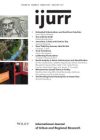This article investigates the ways in which cultural economy is formed through negotiation and interaction between local actors in the case of culture‐led regeneration in Gwangju, South Korea. It looks at the dynamics between the bureaucrats’ pursuit of economic growth in the city and the efforts of civil society to maintain a strong political spirit throughout the regeneration process. Through in‐depth interviews with various participants and archival analysis, the politics of cultural economy are examined in relation to the Gwangju Biennale and the City of Culture project. The findings show that in these two cases bureaucrats were the dominant force, a tendency that instrumentalized culture. They also illustrate that this dominance brought about resistance from civil society. However, in the process of both engaging in conflict and working with each other, the different discourses of economic growth and cultural meaning were integrated, and in the process mutual learning and adaptation took place among members of the two groups. Civil society also faced cleavages resulting from different approaches to how to collaborate with the bureaucrats and its ensuing self‐reflection on communicative value enhanced its rehabilitation. The article argues that the politics of cultural economy is dynamic, involving processes of renegotiation, adaptation and self‐realization. It also offers the possibility of a new arena for the public sphere. Civil society plays a critical role in the integration of culture and economy.
Details
Written by:
HaeRan Shin, Quentin Stevens
Digital Object Identifier (DOI)
10.1111/j.1468-2427.2012.01161.x
About DOI
Read full article as PDF
Read full article as HTML
See the references for this article
